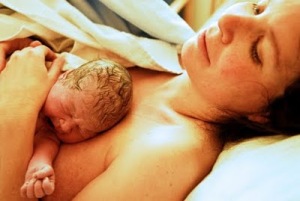NOTEWORTHY WEDNESDAY!
Midwife or Doctor?
Many pregnant women ask this question and the answer is not an easy one.
Let’s face it, we have all heard the ‘horror story’ labor and delivery tales. They are very frightening to the first time mom-to-be. It is a wonder any woman who has heard one of these stories chooses to get pregnant.
As a former labor and delivery nurse I surely have played a role in someone’s birth story…I hope it was one of the nice ones.
If you are planning to have a baby or are currently pregnant you may be considering going to a midwife for your prenatal care. There are a few things you need to consider;
- Medical health: how is your general medical health and would you be considered high-risk due some underlying medical condition?
- Approach: what type of approach do you prefer…are you looking for a practitioner that is more holistic in his/her approach?
- Personal needs:you will need to know your own individual needs and find a practitioner who is respectful of them.
- Setting:what kind of setting are you hoping for your labor and delivery…would you consider a birthing center or are you more inclined to want a natural delivery with options, such as epidural anesthesia, that are only available in a hospital?
- Cost factor: what does your insurance cover … does it cover a birthing center delivery with a nurse mid-wife or a trained mid-wife home delivery.
Practitioner qualifications are sometimes confusing as well:
Obstetricians are generally board certified in obstetrics and gynecology…they are trained to deal with pregnancy, labor and delivery and any complications and emergencies that might occur. Physicians are many times waiting for a disaster to occur which is why they are quick to intervene in many cases. It is simply their focus as physicians and surgeons.
CNMs, (Certified Nurse Midwives) many times work alongside physicians…they tend to take more time with their patients; they are more apt to try measures in labor that will help to avoid use of pain medications and other interventions unless absolutely necessary. That is not to say you cannot find a physician that will do these things also.
Direct-entry midwives..they are not nurses but they are licensed and trained to deliver babies. They do home deliveries as do some CNMs.
Life is full of choices. When you are pregnant choosing the right person to take care of you during your pregnancy is extremely important…you need to feel comfortable, confident and secure in their approach and their qualifications to assist you through a healthy pregnancy and a safe delivery.
How to find a midwife
- American College of Nurse-Midwives operates a toll-free hotline (888/MIDWIFE) that lists CNMs in your area. For general information, call 202/728-9860; write to 818 Connecticut Ave. NW, Suite 900, Washington, DC 20006; or check out the group’s website at www.midwife.org.
- Maternity Center Association publishes a booklet, Journey to Parenthood($6), with information on choosing a maternity-care provider. Call 212/777-5000 or Write to 281 Park Ave. South, 5th Floor, New York, NY 10010. Visit the MCA website at www.maternity.org.
- Midwives Alliance of North America can refer you to direct-entry midwives and CNMs in your area. Call 888/923-6262 or Visit their website atwww.mana.org.
- National Association of Childbearing Centers can provide a list of birth centers in your area, as well as information on how to select a birth center. Send a $1 donation to 3123 Gottschall Rd., Perkiomenville, PA 18074.
Should You Use a Midwife? – Parenting.com.



